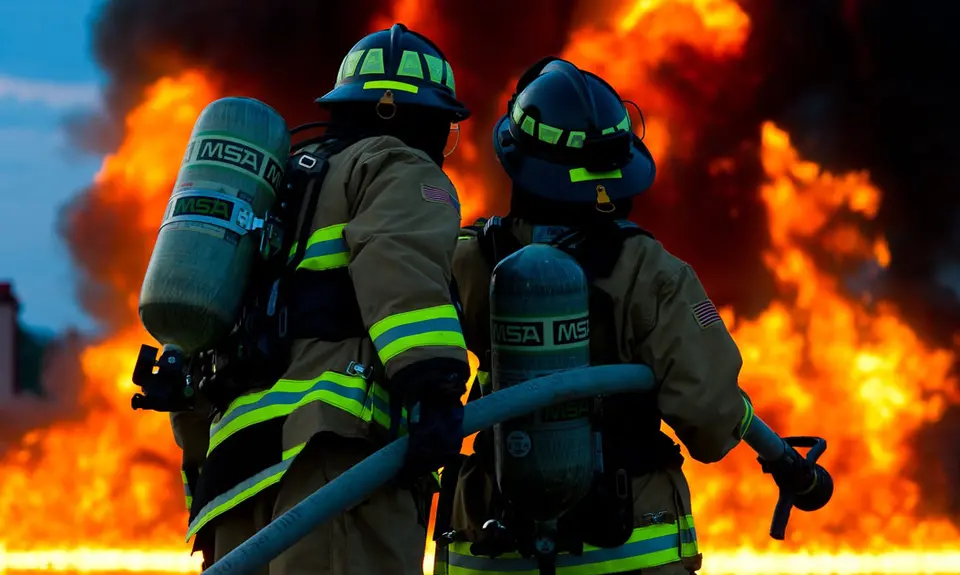“Confirmed Judges, Confirmed Fears” is a blog series documenting the harmful impact of President Trump’s judges on Americans’ rights and liberties. Cases in the series can be found by issue and by judge at this link.
Trump Sixth Circuit judge John Nalbandian argued in dissent that the court should reverse a district court decision, grant qualified immunity to fire and police officials, and dismiss a claim that the fire officials caused harm to a family by improperly conspiring to have them investigated for homicide by arson. The majority disagreed and affirmed the district court decision to deny the motions to dismiss and for qualified immunity in its August 2020 decision in Marvaso v. Sanchez.
George Marvaso and his family lease and operate an Italian restaurant in Westland, Michigan. A fire broke out in the restaurant’s kitchen one morning and, although the city Fire Department was able to put out the fire, one firefighter died of smoke inhalation. City Fire Department officials John Adams and Michael Reddy Jr. directed that the department investigate the fire, and concluded that there was no evidence of an accelerant or arson and that the cause of the fire was thus undetermined. This accorded with the findings of the Marvasos’ landlord and insurance company.
Almost two months later, the Michigan Occupational Safety and Health Administration (MIOSHA) concluded an investigation and determined that the death resulted, at least in part, from the city Fire Department’s own “multiple violations of health and safety regulations,” such as failing to follow procedures for issuing a “mayday call” when firefighters exited the building with one firefighter missing. The Fire Department admitted its violations and paid the fine assessed by MIOSHA.
During this period, according to the Marvasos, Adams and Reddy, along with Reddy’s father, were “planning a scheme” to try to divert attention away from the Fire Department and its responsibility for the firefighter’s death. Almost six months after the initial findings about the fire, even though he had received no new evidence, Adams “reversed course” and concluded that the fire had an “incendiary cause,” knowing that this would trigger an arson investigation. Although the Marvasos were never arrested or charged with anything connected to the fire, they filed suit against Adams and the Reddys, contending that the “unjustified homicide investigation” that they triggered resulted in loss of employment, harmful search and seizure of their property, and “inability to rebuild their family business” because of the loss of insurance proceeds. They also sued city police lieutenant Richard Sanchez for allegedly falsifying information in order to obtain a warrant to search their homes.
Adams, the Reddys, and Sanchez tried to dismiss the Marvasos’ complaint as a matter of law, without any discovery, based on qualified immunity. Adams and the Reddys also asserted that the complaint failed to state sufficient facts to support a civil conspiracy claim under federal law. The district court denied the motions and the defendants appealed.
In an opinion by Judge Eric Clay, the Sixth Circuit affirmed the district court’s decision. It found that it did not have jurisdiction over John Reddy Sr.’s appeal, since he was not a public official, and that the district court properly found that Sanchez was not entitled to qualified immunity because he relied on the allegedly falsified warrant to conduct the search, that there were disputed issues of material fact that precluded qualified immunity for the others and that the district court was correct in finding that the Marvasos “plausibly alleged” each element required in their civil conspiracy claim.
Trump judge Nalbandian dissented. He claimed that Sanchez raised the argument that apart from his alleged falsifications, the warrant was supported by probable cause, so that there was thus “no constitutional violation,” and he was entitled to immunity. Nalbandian also asserted that the Marvasos did not “adequately plead” the conspiracy claim because the only alleged constitutional violation was the improper search, and that search was not improper. He agreed that there was no jurisdiction over Reddy Sr.’s appeal, but maintained that since the conspiracy claim was improper against all, he should be dismissed too, And Nalbandian claimed that immunity should have been granted as to Adams and Reddy Jr. because there were no issues of fact genuinely in dispute and, even if there were, the facts as alleged do not demonstrate a “clearly established” constitutional violation.
Judge Clay explained what was wrong with these arguments, many of which were also made by the defendants. A careful review of the record showed that Sanchez did not argue that there was probable cause for the warrant apart from his falsifications, and that he “simply asserted” that the warrant meant he could not be liable, which is wrong as a matter of law. It was also “clearly established.” Clay went on, that the “knowing fabrication of evidence,” as Sanchez, Adams, and the Reddys did, “violates constitutional rights.” This conclusion, plus the fact that the record showed that there were in fact genuine disputes as to material facts and the courts have ruled that it is generally “inappropriate” to grant qualified immunity as a matter of law before there has been any discovery at all, made it clear that the district court was correct.
If it had been up to Nalbandian, however, the Marvasos would not have had a chance to present to a jury or even conduct discovery on their claim that the defendants had harmed them by falsely suggesting that they were guilty of arson and falsely obtaining a search warrant. The case is yet another example of how ready Trump judges are to grant qualified immunity to police and government officials and prevent accountability for their improper conduct.
